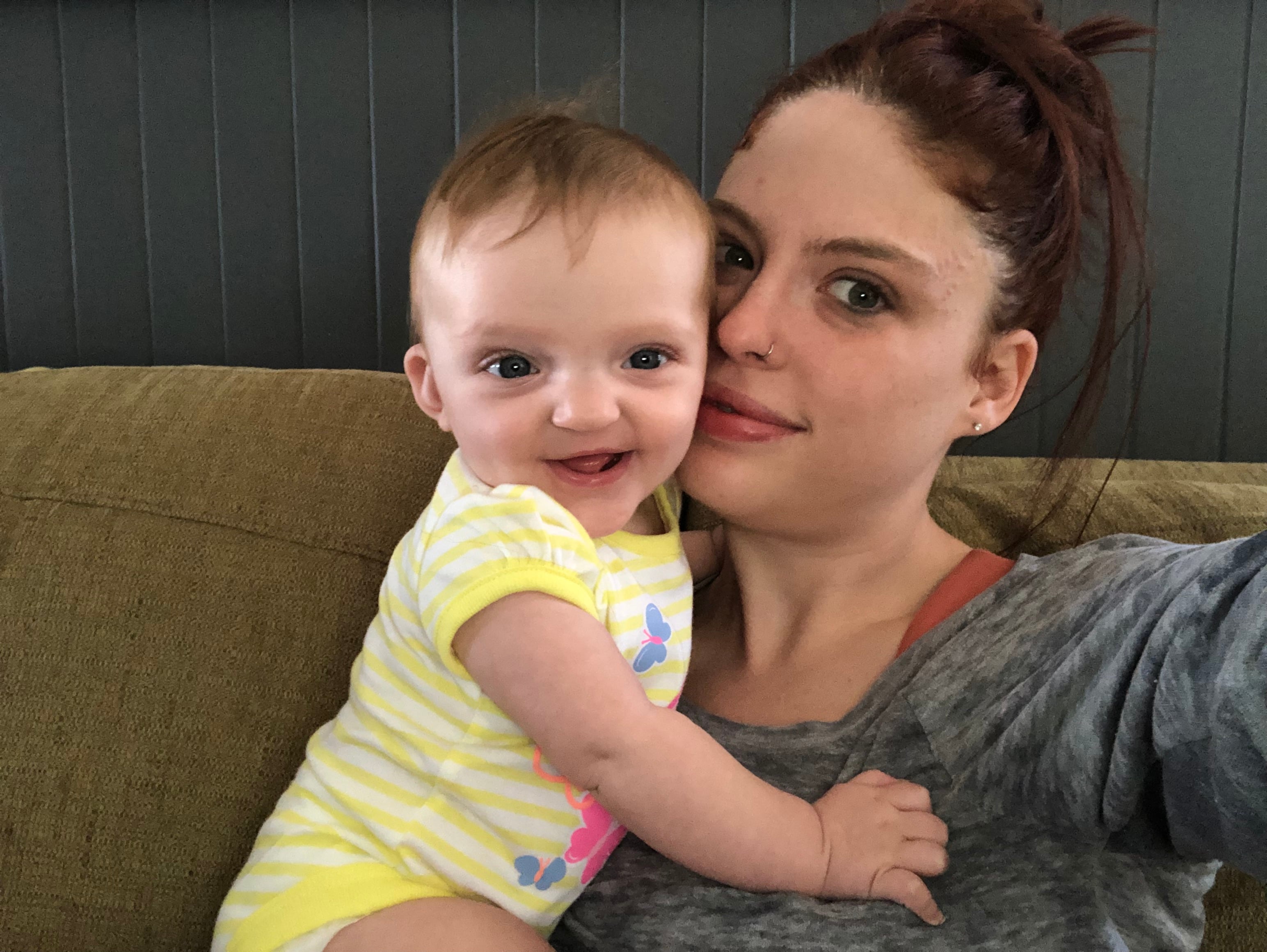The mother of a 7-month-old baby who died at a babysitter’s home reported for unauthorized and unlicensed caregiving in Hawaii military housing says officials need to make changes to ensure children are protected.
“I had no idea [the caregiver] was being reported for neglect,” said Anna, who asked that her last name be withheld for security reasons. “I only found out that day outside the house waiting for the police to release me from the scene,” on Feb. 24, the day her child died at Aliamanu Military Reservation. The baby’s father is a member of the Army National Guard.
Neighbors told her what they had reported previously to authorities. “If I’d known that all those things had happened… I felt so upset. If I had known there were reports of neglect, I would have taken my children out so fast.
“Abigail would be alive,” she said. “I wanted my children to be safe. That’s my main priority.”
Two months after Abigail’s death, the incident is still under investigation by the Honolulu Police Department, which has classified it as an unattended death. No charges have been filed. No one is placing blame on the caregiver; attempts by Military Times to reach her have been unsuccessful. Sources said the caregiver and her family have moved off the installation.
The medical examiner’s office has not released information about the cause of death.
Following the incident, the Army launched an investigation into child care authorizations and procedures on Hawaii bases, and it is ongoing, said Dennis Drake, a retired Army colonel who is spokesman for U.S. Army Hawaii.
A neighbor who lives near the home where the child died said the death came four days after she filed a complaint alleging the provider, a Navy wife, was operating an unlicensed daycare that had been shut down at least three times by base officials who allegedly found violations. The daycare is in privatized housing at Aliamanu Military Reservation, part of U.S. Army Garrison-Hawaii.
A neighbor, Katie Camario, told Military Times that she had reported her concerns for more than a year about numerous young children crying and left unattended outside the home, citing various incidents such as the children playing with a lighter, and one child’s head being stuck in playground equipment. Other neighbors also said they reported similar concerns. She adds that she and others are not placing blame on anyone for Abigail’s death.
Camario said she had filed a report with the military’s Interactive Customer Evaluation website on Feb. 20 – four days before Abigail’s death. She had also reported her concerns to Army Family Child Care officials, as well as to military police, as early as December 2017, she said. Family Child Care officials told her the provider was not licensed to provide child care, she said.
On military installations, in order to provide child care in a home, providers must undergo stringent reviews and training before being certified and allowed to operate the business. They must undergo fire and safety inspections, and provide a learning curriculum tailored for the child’s age. There are also limitations on the number of children that are allowed at any given time in the provider’s home.
Army Installation Management Command officials will determine their way forward once they have received and reviewed the results of the police investigation, said spokesman Scott Malcom. In the meantime, they are developing materials to inform parents about day care licensing on installations, and on family child care certification for spouses who may want to offer child care in their homes, he said.
In addition, “Child and Youth Services staff will reiterate training on how to investigate reports of unauthorized child care to better protect the health, safety and wellbeing of children on our installations,” he said.
RELATED

“I didn’t even know about unlicensed care before this happened,” Anna said. “Licensing never came to my mind. I guess I wasn’t really educated. I didn’t have any idea what that was. I had zero indication that was happening.”
There had been times when she had previously taken her toddler son to daycare situations where if she didn’t feel comfortable in the first five minutes, she pulled him out immediately.
“I never got that feeling with her. I was so blindsided. …," she said.
“I never felt my children were unsafe. She was just so reliable. I’m usually pretty good at picking up on stuff like that. Now I’m questioning if my gut is not making the right choices for me and my children.”
The day Abigail died, she said, the sitter texted “Come now,” to Anna. “I texted her back, ‘Is everything okay?’ She said, ‘no, please come now.’
“I had no idea what I was driving into. My thought was not that something terrible had happened to my children, because I thought I would have received a phone call or something.
“When I pulled up to the house, I didn’t even stop my vehicle. I saw the MPs, the ambulance, the [Honolulu police]. My heart dropped.
“They asked who I am, and I told them my kids are inside, and they asked me which ones were my children. I said I’m the mother of a 7-month-old and 2 ½ year old. Their faces went white.
“I was freaking out. They said, ‘I’m so sorry. The babysitter found your daughter not breathing. We tried to administer CPR but she was too far gone.’ There was nothing they could have done for her,” Anna said, in tears as she remembered the day.
Anna said she has been given preliminary information about the investigation, but doesn’t want to discuss what authorities have told her.
“We just can’t release that information," she said. “The investigation will take a good amount of time. It’s important that they’re thorough, to make sure they’re not missing anything."
Anna questions whether the right steps were taken to make sure children were being kept safe, when the provider continued to operate.
“Was the system implemented?" she asked. “If there were reports, and I had no idea these things were happening…. Something clearly needs to change. Someone dropped the ball.”
The sense of loss has no ending, Anna said.
“I’ll never get over Abigail’s death, ever. I cry every day.”
Karen has covered military families, quality of life and consumer issues for Military Times for more than 30 years, and is co-author of a chapter on media coverage of military families in the book "A Battle Plan for Supporting Military Families." She previously worked for newspapers in Guam, Norfolk, Jacksonville, Fla., and Athens, Ga.





